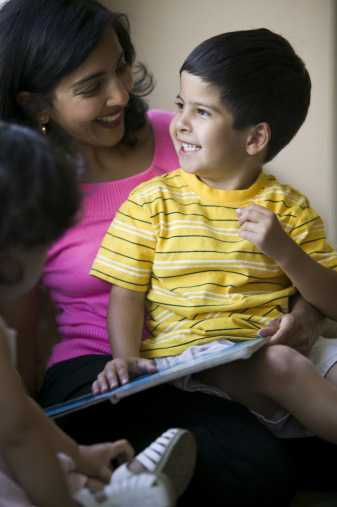Why are discipline and consequences important?

From time to time, your child is going to do things you don’t like. He’ll do things that are dangerous. He’ll do things you don’t want him to do again. He’ll also do a lot of things you like. The consequence or what happens right after your child’s behaviors makes the behavior more or less likely to happen again. Consequences can be both positive and negative.
Positive and Negative Consequences
Positive consequences show your child she has done something you like. Your child is more likely to repeat the behavior when you use positive consequences. Positive consequences include things like rewards, praise, and attention. Use positive consequences as much as possible for behaviors you would like your child to do again. Click here for more information on rewarding, praise, and attention.
Negative consequences let your child know you do not like what she has done. Your child is less likely to repeat the behavior when you use negative consequences. Negative consequences are also called discipline. Negative consequences include things like ignoring, distraction, loss of a privilege, and time-out. Use negative consequences for behaviors you would like your child to stop. It’s a good idea to start with ignoring and distraction, especially for young children. Other consequences may be needed if ignoring and distraction don’t work or are not possible. Natural consequences, delay or removal of privileges, and time-out can be used to stop misbehavior. More information about these consequences is provided below.
Ignoring
Children sometimes throw tantrums, whine, and interrupt just to get your attention. When you take away your attention from your child and these misbehaviors, the behaviors often stop. When ignoring, do not make eye contact with your child or talk to him. Ignore anything your child does to get your attention. Click here to learn more about when and how to ignore.
Distraction
When you distract your child, you get him to focus on something else. By doing this, he stops the misbehavior. You can use distraction anywhere. You just have to be prepared. Crayons and paper, toys, and small games are things you can keep with you to distract your child. You can also make up games. For example, if your child is whining in the grocery store, you could play the “show me” game. Ask your child to name or point to everything on the aisle that is the color blue or in the shape of a square.
Natural consequences
Natural consequences are things that happen because of what we do or how we act. If you tell your child to play carefully with a toy but she continues to bang it, the toy may break. In this case, your child has experienced the natural consequence of playing roughly with the toy. Although it is good for your child to learn from his mistakes, natural consequences should never put the child at risk. Do not allow your child to do anything that could hurt him or others, such as playing with matches or running into the street.
Delay of a privilege and logical (or common sense) consequences
Delaying a privilege means that your child has to wait to get something she really wants. You might tell your child, "After you pick up your toys, you can go out and play". Or, "When you take three more bites of your dinner, you can have dessert." Removal of privileges means taking away the items or activities your child enjoys most. For young children, removing privileges is often called logical (or common sense) consequences. The consequences are logically related to the misbehavior. You might take away toys or crayons that are not handled carefully. You might turn off the TV if your children are arguing about the channel. If your child spills something on purpose, a logical consequence is having your child clean-up the mess.
Time-out
Time-out removes the child from where he is misbehaving. Time-out puts the child in a place that is free of anything or anyone that might provide attention. If your child hits his brother, you can give him time-out. Time-outs, when used the right way, really work at reducing a child’s misbehaviors. Click here for more information about time-out and how to do a time-out.
Tips on Discipline and Negative Consequences
The negative consequences used to decrease misbehavior should relate to the misbehavior and the seriousness of the misbehavior when possible. If your child is not playing nicely at the park, you can simply take her home. In this case, the negative consequence of going home fits the misbehavior at the park. Negative consequences should never deprive the child of basic essentials, such as food, a bath, or school.
After any consequence your child does not like, go back to being positive with your child. Remember that consequences should be directed at the behavior and not at the person. Avoid saying things like, “You never do anything right.” These comments can be damaging to your child’s self-esteem and to the parent-child relationship. It was the behavior that was the problem, not the child.
- Page last reviewed: May 19, 2014
- Page last updated: May 19, 2014
- Content source:


 ShareCompartir
ShareCompartir